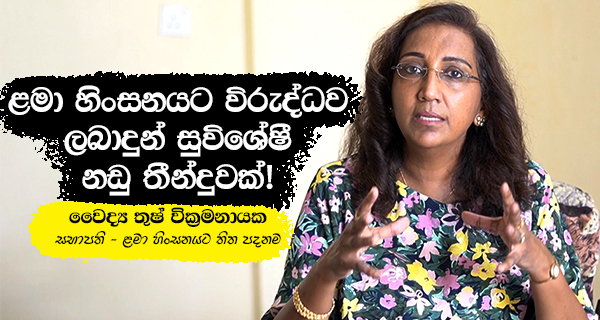In this well-beaten and well-developed country, our children are still likened to milk curd. It is because we are spooning this milk that violence, youth violence and adult violence are so high in our country. Corporal punishment is one of the most common forms of child abuse in the world, including in Sri Lanka. In that regard, Sri Lanka has dropped from the 196 signatories to the UN Convention on the Rights of the Child to at least 10 countries. We really need to worry about this. Shame on you.
Recently, our Hon. Supreme Court gave a historic and golden decision to put an end to this cycle. That was in 2017 when a schoolteacher, in the case of a child, as we put it in practice, was about to “scratch”. The verdict in that case was given in February 2021. At that time they gave the verdict in five sections. One is the constitution of this country. That’s a normal thing to do. The right of every citizen to live independently, without fear or suspicion. It’s the same for a newborn, a seven-year-old, a 90-year-old grandfather. Secondly, we have circulars issued by the Ministry of Education. That children should not be beaten. These circulars have been updated since the 1920s and the latest 2016 circular has been issued. That it should be formalized. Third, judgments are usually made according to social opinion. A judgment based on the attitudes of the society. Often the crimes committed against our child are socially justified by us. There is an opinion that we are fine because we were beaten. However, in this case, the Supreme Court has rejected the outdated notion that the child who does not make soup and does not make soup, has written this judgment in Sinhala saying that we cannot accept this now.
The fourth point is the law of a country in general. We have enacted laws in our country, especially with regard to child protection, in accordance with the law signed in 1991 on the Convention on the Rights of the Child. The first paragraph states that we cannot accept child abuse. No matter how subtle that violence is, we cannot accept it. That is to say, whether the ear is pierced, the ear is pierced, the torso is pierced, the knee is pierced, or the cane is pierced. That none of that can be accepted. Instead, they recommend positive disciplinary control. Therefore, the Hon. Court also approved it on this occasion.
In the end, what often happens is that if something happens that violates the law of our country, individual governments come and say it was something that happened at that time. It was not something that happened in their time. Something that happened during the previous government. That way it is avoided. However, the respondents in this case are the former Minister of Education Akila Viraj in 2017 and his Secretary as well as the teacher and the Zonal Directors of Education, as well as the present Minister of Education Prof. GL Peiris in 2021 who gave the verdict. Peiris, his secretary has been used as the answer party. Because they have emphasized that their responsibility and accountability cannot be neglected. So this is a wonderful, unique, historic case. The other was that the teacher was fined personally. Also, for the first time, the Ministry of Education received Rs. A fine of Rs. 500,000 was imposed. Why did you do that? The fine is paid privately, not out of the pocket of the Minister of Education. This is how our taxes are paid. Then the Supreme Court says that the whole society should be responsible for something like this to happen, that is the responsibility they are emphasizing. I think we should take care of these children with more dedication, more compassion and love. This violence must be completely rejected.
